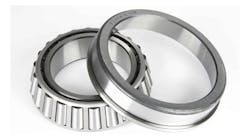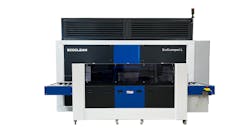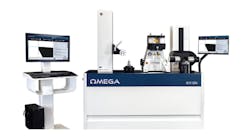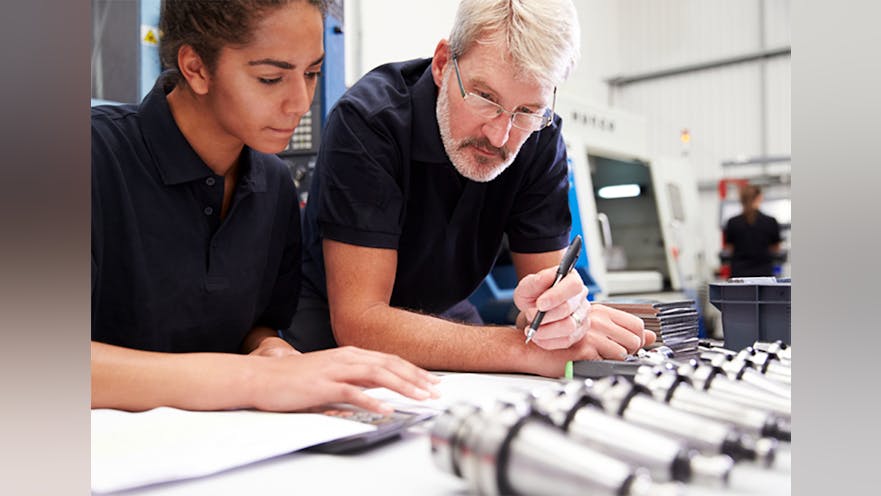Rugged Industrial Panel PCs for HMI
Larger Part Cleaning Systems
Tech incubators have long supported eager entrepreneurs as they get their startups off the ground. Why can’t manufacturing startups benefit from a similar concept?
In fact, across the U.S. many incubators have been created with the specific purpose of helping fledgling factories to get off the ground. As the manufacturing sector faces its particular challenges — a widening skills gap, economic uncertainty, to name two specifically — incubators that foster shared workspace and other resources can help small manufacturers remain competitive on a global scale.
Incubators for manufacturers can provide new startups with all sorts of benefits. Here are the top seven reasons why incubators are boosting American manufacturing:
1. Cutting manufacturing costs — Many manufacturing startups are stunted in their initial growth, not because their product idea is faulty but more due to the steep cost of manufacturing equipment, materials, labor, and overhead.
Investors can help with this, but the funding may not come right away. Many emerging manufacturers are now turning to incubators to help them launch their startups because they can provide everything they need at a much lower cost.
For example, an incubator called Industry Space Seattle allows manufacturers to share expensive equipment such as a forklift, overhead crane system, a compressed-air system, and more. Such incubators are invaluable to someone who is ready for his or her operation to move out of the garage, but not quite ready to take on investors.
2. Support and networking — As any experienced business owner can attest, starting a business from the ground up is hard work. It’s much easier when you have a strong support system and networking opportunities in the early stages.
Fledgling manufacturers can benefit from sharing office space with other startups. For example, a manufacturer of plastic enclosures can help another manufacturer find the ideal enclosure for a new prototype.
In addition to incubator neighbors benefiting one another, manufacturers also can make use of business assistance programs, coaching, workshops and other resources that will help them gain experience while they build their business.
3. Reducing the skills gap — As the manufacturing industry continues to evolve, the skills gap is becoming more of an obstacle, especially in advanced manufacturing. Some tech incubators are seeking to change this by providing technical skills training to those interested in pursuing manufacturing careers.
A great example is Ranken Technical College in St. Louis. The school recently began construction on Manufacturing Inc., an incubator designed for microenterprises and advanced manufacturing. The 26,000-square-foot center will allow students to gain real-world experience in high-tech manufacturing while earning credit toward a degree. It also will benefit participating manufacturing companies by helping them to produce goods and services.
4. Spurring innovation — Incubators offer start-up manufacturers a nontraditional space with the freedom to be creative, to come up with innovative ideas. The space is shared by workers with a similar drive and entrepreneurial spirit.
This atmosphere, along with the incubator’s plentiful resources, can make the difference between a product brought to fruition and one that never sees the light of day. Collaboration comes naturally in a shared space, which promotes innovation and lets like-minded manufacturers and tech-savvy entrepreneurs trade ideas and insights.
5. Attracting investors — Of course, manufacturers aren’t meant to stay in an incubator indefinitely. At some point, they need to leave and allow their business to be successful on its own.
Incubators can assist manufacturers to secure capital and customers that a business needs to scale. They do this building relationships with angel investors, high-tech brands and venture capitalists who are key to bringing products to the marketplace.
It’s up to the manufacturer to become valuable in the eyes of an investor. However, a good incubator will provide the mentorship and coaching that startups need to attract potential investors.
6. Manufacturing in the 21st Century— Over the past decade, American manufacturing have relied more on advanced manufacturing techniques in their production lines. To remain competitive, they can benefit from the equipment supplied by tech incubators. Replacing traditional designing and printing methods with 3D printers, for example, will cut production time.
Tech incubators can provide manufacturing startups with modern equipment such as 3D printers, which can replace traditional designing and printing methods. This can cut the development process from weeks to days, or hours.
Whether it’s 3D printing, automation, or some sustainable processes, tech incubators can provide manufacturers with the tools and resources they need to remain competitive in a 21st century market.
7. Mitigating risk — Even after researching the market and scoping the competition, there is always some risk to launching a business. The last thing that any entrepreneur wants is to invest in expensive equipment, only for the business idea to fall flat.
Tech incubators can provide resources to mitigate your risk. For example, supercomputers allow entrepreneurs to test their product ideas before they go to market. This can save them a lot of time and money by avoiding a launch that may prove disastrous.
It’s a challenging time to be an American manufacturer. Issues surrounding the skills gap, the ongoing trade war and the rapid pace of high-tech manufacturing have made smaller manufacturers less certain about the future.
Incubators can relieve some of the growing pains for manufacturing startups by providing them with valuable resources to help them successfully scale their business. In addition, the shared space and resources can prepare manufacturers for helping to solve future challenges that lie ahead for the whole manufacturing sector.
Katherine Began is a director at Polycase, manufacturers of enclosures for the electronics industry. Contact her at [email protected]









